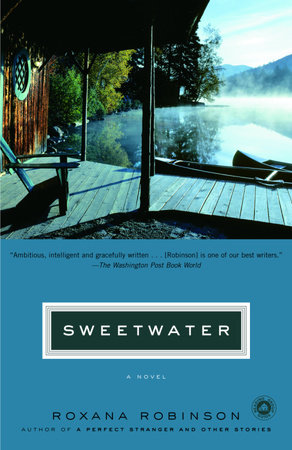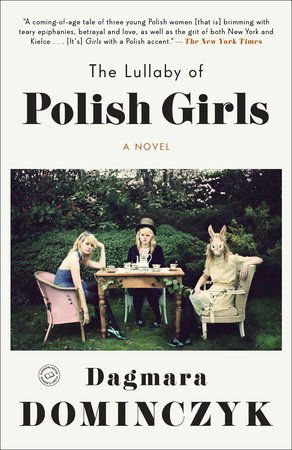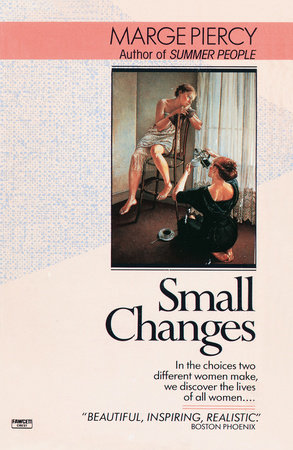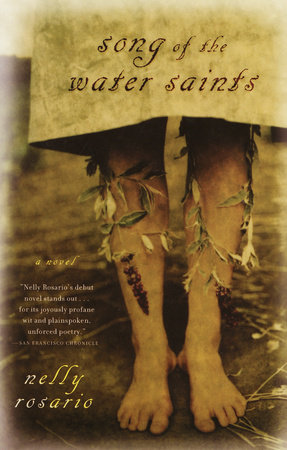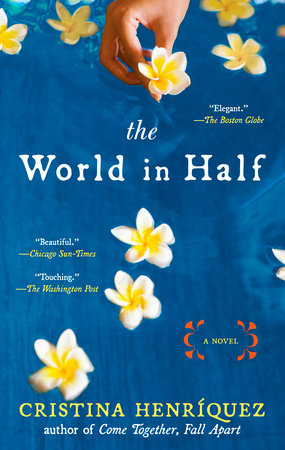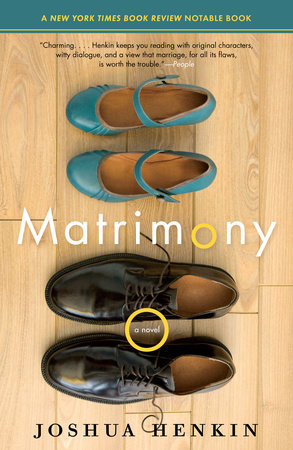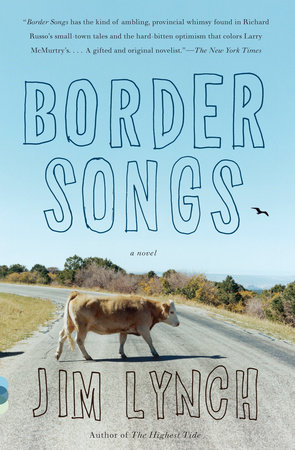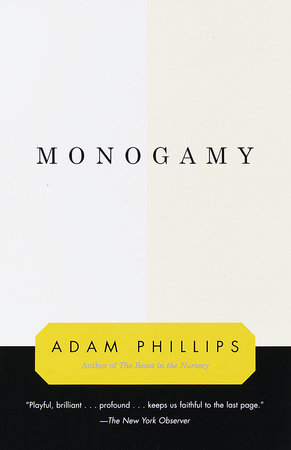A Conversation with Achy Obejas
Ilan Stavans is the Lewis-Sebring professor in Latin American and Latino Culture at Amherst College. This interview was first aired in November 2001, in a somewhat different form, on the program "Conversations with Ilan Stavans," on PBS-WGBH.
ILAN STAVANS: Days of Awe, it strikes me, is about the tension between public and private identities.
ACHY OBEJAS: Indeed. It runs from the fifteenth-century Jewish diaspora during the Spanish Inquisition to contemporary Midwest America. But it’s not exactly a linear story. Told from the point of view of Alejandra San Jose, the daughter of Cuban exiles living in Chicago, it’s her personal journey through the family’s history– and Cuba’s history, too–to reconcile her identity and her soul. So it plays something like memory does: It moves according to her needs rather than a traditional time line.
IS: Memory–individual memory, family memory, national collective memory–plays an essential role in your work. This is in tune, of course, with Jews and Cuban Americans, whose memory is highly charged.
AO: With Jews, of course, memory is fundamental: to remember the essential; and the recovery itself is a mission. With Jews memory is history and moral lesson. But memory is crucial among Cuban exiles, too, even though as a people we don’t have a very long history. What makes this community a bit different from other Latinos in the United States–and similar to the biblical Jews–is that the relationship with the homeland is ruptured. This might be changing among Cubans now, since there is a great deal of travel to the island, especially for post-1980s immigrants and those who grew up away from their birthplace and want to see it again. The young generation is tremendously curious. It asks, What is there in Cuba for me? Is it at all like the Cuba of dreams and fantasy I was brought up with?
IS: A promised land, sort of . . .
AO: Exactly. But no place on earth is perfect. If so, Fidel Castro’s revolution would not have been possible or necessary.
IS: Isn’t that a natural response to exile–the attempt to survive the present by inventing or embellishing the past? Isn’t exile the transformation of memory into a homeland?
AO: In a way it is. It also has to do with the need to find a reason for one’s own misery–after all, one needs to justify being away, broken, separated from the source. Why here and not there? And why here you’re one of many, whereas there you’re unique, special, personalized. The biblical Jews had God to explain their condition, but for Cubans, it’s more personal. It is common to hear Cuban exiles say "We gave everything up" and "We left our lives behind." While the biblical Jews were moving toward paradise, Cuban exiles often feel that they moved away from it. And so exiles imbue life in the diaspora and on the island with a great deal of meaning– mostly a certain nostalgic predisposition.
IS: Like a lot of your characters, you left Cuba on a boat at the age of six. Do you remember the departure and arrival? How has the scene played itself out in your memory? Has it changed?
AO: It has a fragmented, impressionistic texture. Obviously I could not imagine, at that tender age, the unfolding drama. So, as a child, it was just an adventure. There were a total of forty-four people in a twenty-eight-foot boat. Seventeen of us were kids. It was late at night. We were told we were going fishing. For me, the sequence of events is episodic. For instance, I remember the inky blackness of the water. I also remember a storm. And I remember that we got sprayed with salt water. Halfway through the trip, we were picked up by an American oil tanker. Our little wooden boat suddenly was at the side of this huge metal ship. It was gigantic. I couldn’t see above it, to the sides, under it–it was tremendous. It was like a wall in the ocean and Cuba was on the other side. Rope ladders came down. The little ones like me were handed up to the sailors by our parents. My father pushed me up. I remember a hot, pink arm, completely hairless, and the sailor’s smell. The sailor grabbed me and hauled me up–not in a violent fashion but gently. Then he put me down on the floor of the oil tanker. I remember looking up at him and thinking, Might I have landed on Mars?
IS: What happened during the first few years as a little cubanita in the United States–the process of arrival, assimilation, the process of becoming, slowly, through school, through family, una americana?
AO: My family was in Miami for about a year and a half. Then my parents signed up for a program designed to assimilate Cuban professionals into American society. It was in Terra Haute, Indiana. So the family got transported to the Midwest. The landscape changed dramatically. I found myself in fields of corn, surrounded by lots of people who didn’t understand us, while we didn’t understand them. I spent six to eight months not uttering a word because I was in a classroom where it was forbidden to speak Spanish, and, obvi-ously, I couldn’t yet speak English. I was afraid of being made fun of if I spoke en ingles. So I made a decision: I wouldn’t speak English until I could do it without an accent.
IS: Was there at any point a mix-up of the two languages–a little of Spanish and a little of English?
AO: At home it was absolutely pure Spanish from the moment you walked in the door. My father was dictatorial. If you started a sentence in Spanish and ended in English, he would back it up and repeat it for you fully en espanol. It was impossible to get an answer from him unless everything was in Spanish.
IS: To a large extent, Days of Awe is a novel about identity, one in which language serves as a key to map out the past. Several of the characters are translators or interpreters: Alejandra, her father, Barbarita. How does the act of translating serve as a metaphor for crossing cultural boundaries?
AO: I think immigrants and, particularly, exiles are always translating, not just language but culture and circumstance. One of the most significant differences, I think, between an immigrant and an exile is that the immigrant, on some level, undertakes the possibility of a new identity with some willingness and transports herself emotionally to a new home. But for the exile, return to the native land–and the true self–is both essential and eventual. Translation for the immigrant is necessary in order to penetrate, integrate and, more often than not, assimilate. For the exile it may be all that as well, but there is, I think, a great desire to preserve. An exile holds on, I think, in ways that require translation to be constant, as much an act of resistance as of survival, because the exile–forbidden to return home–lives for that return, even if only symbolically. Native skills–including language, ritual, the way of tuning one’s senses–can’t ever be taken for granted or lost. Exiles, I believe, live not just between cultures the way immigrants do, but also between realities: There’s the mundane reality of everyday life, and there’s the reality that might have been and, hopefully, will be again.
IS: Jewishness is prominent in Days of Awe, which to me appears to be autobiographical fiction. Alejandra San Jose, aka Ale, born on New Year’s Day in 1959, comes from Cuba to Chicago and eventually returns. What are the roots of this interest of yours?
AO: Well, the novel isn’t autobiographical per se. It borrows from my life, the way I think all fiction borrows from the author, but it’s more in the details than in the narrative. What I mean is, for example, the address of the place where Ale was born is actually the address of the house where I first lived. But her relationship to the place is completely different from mine. I have no emotional ties to it; I went once and that was enough. But for her, it’s a significant landmark, a place constantly on view. By the end of the book, she’s with a potential lover in the very place where she was conceived. As to the notion of return, I think that is pretty fundamentally Jewish.
IS: How did the topic of the anusim–the Jews who survived the Inquisition by pretending to be Catholic–come to you?
AO: Growing up, we lived in a Jewish neighborhood, had Jewish friends, and went to seders. Then a friend told me my surname was Jewish. I asked my father about it and he was surprisingly evasive. Then I did a reading in Boston in 1994, and a bunch of Latin American Jewish women came up to me and asked if I was Jewish, and I said no. But they were pretty insistent, and they turned me on to the story of anusim, or crypto-Jews. I went back to my dad but got more or less the same fog. So I began to explore the situation on my own. And it turned out that my family was, in fact, descended from these people on my father’s side, though our particular story is not especially glorious.
I did research in three different countries: United States, Cuba, and Spain. It was like learning a new language, because the iconography of the crypto-Jews is very particular. So it wasn’t just about reading, so to speak, but also rereading: Ordinary life is filled with all sorts of clues about the anusim in Cuba and throughout Latin America, but the signs have been corrupted and often coopted, so it’s not so easy. The story’s sweet and brave and tragic, and I wanted to tell it–to retell it, and to imagine it aloud, and to name it so others can come along and do something else, take it a step further, enrich it.
IS: How does it feel to be called a Latina? Or are you a Cuban only?
AO: I often feel Latina, although my metabolism, I take it, is different from other people’s. I live in Chicago, which has substantive, representative numbers of different Latino subgroups, none of which dominates the mix: a gazillion Mexicans, Puerto Ricans, Central Americans, and smaller components, such as the Cuban minority. No matter how segregated the city might be, everybody ends up knowing everybody else. In a Mexican restaurant, the jukebox will have Celia Cruz and Tito Puente. In a Cuban restaurant, the waitress–who is probably Nicaraguan–brings tortilla chips to the table. The collage is inescapable. It means that we are all over each other.
IS: Another essential element in your literature is sexuality.
AO: When it comes to sexuality, I’m not especially interested in assimilation but I am interested in normalization. What I mean is that there are different cultural imperatives for gay, bisexual, transgendered, and other people with alternative sexualities–whatever they might be–and I think it’s important that those identities be recognized and celebrated. I think that can be accomplished without shock, without judgment, and certainly without the kinds of legal consequences that make queer people second-class citizens in most of the world. In Days of Awe, I tried to just let everybody be whatever they were going to be, to live and love according to their hearts rather than any particular label.
IS: On this issue, I’m interested in the comparative response to your work from readers in Cuba and the United States.
AO: In Cuba I’m in a privileged position, since I come in as an outsider, a newspaper writer, though I rarely go to Cuba as a journalist. Thus, I have access to people and places that the Cubans themselves, the native Cubans, don’t necessarily have. So I’m tolerated in ways that perhaps others are not. But, also, keep in mind that an important number of the canonical authors on the island (Jose Lezama Lima, Virgilio Pinera, Reinaldo Arenas, to name a few) have been homosexual, and have written explicitly about sexuality. However, Cuban literature that is experientially gay doesn’t necessarily use the term "gay." Instead, it takes an organic approach to sexuality.
IS: How about the segment of the Cuban American population that sees this as a dangerous subject?
AO: The notion of the Cuban or Latino community as homophobic is curious. I, for one, don’t buy it. It occurs because we look at notions of homophobia through an Anglo-Saxon prism. But I think it is easier to be queer in a Latino context than it is to be Latina in an American-queer context. The prejudices of racism are so pervasive, so inherently stronger than the prejudices about sexuality. Gay people are usually born into non-gay families, so the gay-straight divide is being negotiated from the get-go. Everyone has a gay neighbor, a gay brother, a gay teacher, or whatever–it isn’t alien, really. Even in small Indiana towns, without a gay community per se, everybody knows a gay choir director or florist or somebody’s uncle. But not everybody has a Latino brother or a Latino neighbor. Not every town has a native-speaking Spanish teacher or a Mexican restaurant other than Taco Bell. This interaction remains more alien.
IS: You are on staff at the Chicago Tribune. . . .
AO: Yes, and it gives me a license to talk to and get to know all sorts of people in all walks of life. As a reporter, I’m constantly in contact with folks who wouldn’t ordinarily be in my life–from a U.S. senator to the guy who sells live bait out of a bucket on the docks. But writing journalism is very different from literature– journalism is very immediate, urgent, public; literature is more reflective and personal. I think, though, that both experiences feed and give balance to each other.
IS: Days of Awe is rich, yet its style isn’t baroque. . . .
AO: It seems that in the United States, books by Latin American and Latino writers that have the slightest abstraction or surrealism frequently get tagged as "magic realist," whether they fit the bill or not. Cuban fiction isn’t really like that, and neither is Days of Awe. This is a story grounded not just in history, but in reality–in a reality that’s astounding, but reality nonetheless. Alejo Carpentier, the Cuban author of The Lost Steps and an essayist of much influence in Latin America, called this phenomenon lo real maravilloso— the marvelously real, or the marvelous reality. The idea, to which I wholeheartedly subscribe, is that reality, real life, is already so awe-inspiring that we don’t really need to invent much for it to be truly amazing.
IS: The novel pays homage to Cuban literature, doesn’t it? There is a myriad of overt and hidden references to authors and characters.
AO: What I was trying to do was pay tribute to Cuban writers who have been influential or to whom I feel I owe a debt. Most readers will recognize the reference to Celestino, the boy who writes poems on tree trunks, as an allusion to Reinaldo Arenas’s Singing from the Well, and Pilar Puentes, a Miami-based performance artist, as a possible grown-up version of the character invented by Cristina Garcia in Dreaming in Cuban. Other characters–they are cameos, really–echo Cuban writers: Farraluque, the well-endowed erotica writer, sprung from Jose Lezama Lima’s Paradiso; Rene, the chocolate- smeared cemetery caretaker is a possible twist of fate–a woeful one–for the character Virgilio Pinera created in Rene’s Flesh; Teresa Rodriguez, Alejandra’s Cuban interpreter friend, is a nod to Guillermo Cabrera Infante, author of Three Trapped Tigers. There are also brief mentions of poets: Eliseo Diego, Nicolas Guillen, Dulce Maria Loynaz, and Gaston Baquero. For me, these writers are the cream of the Cuban crop. The idea was to have a kind of discourse with the canon. The only significant writer left out, I think, is Carpentier–but that’s because he’s rather overwhelming, and I may need more time and another vehicle for him.







